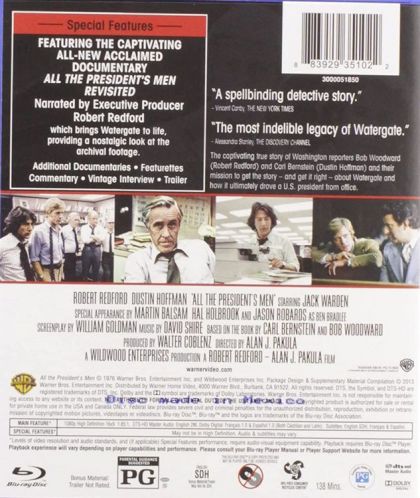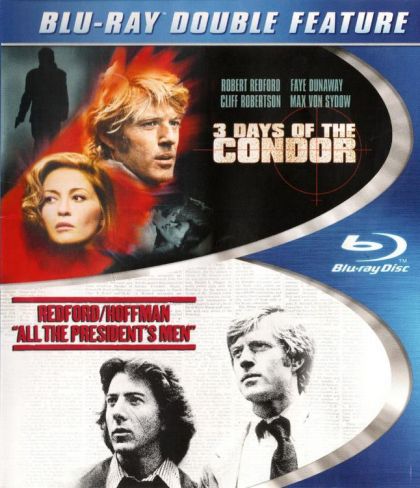
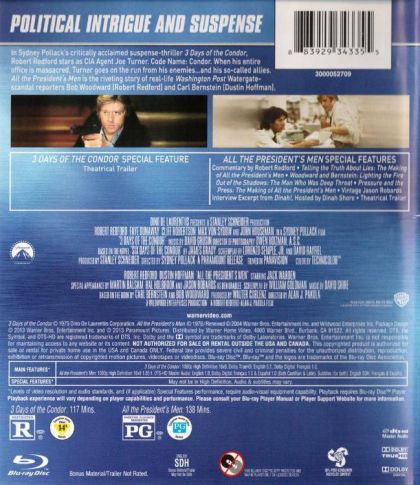
3 Days Of The Condor / All The President's Men Double Feature
883929343355| 1. | 3 Days Of The Condor | 1975 |
| 2. | All The President's Men | 1976 |
All The President's Men

During the 1972 elections, two reporters' investigation sheds light on the controversial Watergate scandal that compels President Richard Nixon to resign from his post.
"The Washington Post" reporters Bob Woodward and Carl Bernstein uncover the details of the Watergate scandal that leads to President Richard Nixon's resignation.
—Jon Reeves
In the run-up to the 1972 elections, Washington Post reporter Bob Woodward covers what seems to be a minor break-in at the Democratic Party National headquarters. He is surprised to find top lawyers already on the defense case, and the discovery of names and addresses of Republican fund organizers on the accused further arouses his suspicions. The editor of the Post is prepared to run with the story and assigns Woodward and Carl Bernstein to it. They find the trail leading higher and higher in the Republican Party, and eventually into the White House itself.
—Jeremy Perkins {J-26}
Factual account of investigative journalists Bob Woodward and Carl Bernstein of the Washington Post whose reporting of the Watergate break-in eventually led to the resignation of Richard Nixon, 37th President of the United States. The film focuses on the period from the break-in on June 17, 1972 to Nixon's re-election in November later than year. Their perseverance - and the support of their editors - revealed that the break-in at the Watergate office complex was only one small part of a much larger network of intelligence gathering activities, many of which were illegal. The story also focuses on the role of Woodward's now legendary secret source dubbed Deep Throat (since identified as FBI Deputy Director Mark Felt) and the encouragement he provided when the journalists hit roadblocks in their investigation.
—garykmcd
On June 17, 1972, the Washington DC police apprehend five men who broke into the National Democratic Party headquarters in the Watergate building. The Washington Post newspaper assigns Bob Woodward, a reporter relatively new to the paper who works the local news desk, to cover the seemingly minor story. When Woodward sees that the five men - primarily Cuban immigrants - have high powered lawyers working for them in the background, he sees a potentially larger story. That's when a fellow reporter at the newspaper, Carl Bernstein, who is more of a hack who was close to being fired, wants in on the story as well, which Woodward eventually welcomes. One of Woodward's Washington insider contacts, who is given the code name Deep Throat, implies that the break-in is indeed part of a larger story. Deep Throat will neither confirm or deny information, but will lead Woodward in the right direction if Woodward does get confirmation of information. Deep Throat eventually tells him to "follow the money", which leads them to uncover that the burglars had moneys in their bank accounts that were originally donated to the Committee to Reelect President Richard Nixon. They have to uncover who controlled the diversion of those funds to see how high up the story goes, which may lead them into the White House itself. Through the process, they have the obstacles of the newspaper's editor-in-chief Ben Bradlee who needs their story to be confirmed by reliable source after reliable source to prevent liable, few sources tied to the Committee who will speak to them on the record (their silence which is as telling to Woodward and Bernstein as actual information), and public apathy as no one but them, their newspaper and those to who they speak seem to believe there is a story at all. As they get closer to the truth, there may be those who will do anything to quash the story, all in the name of national security.
—Huggo
Two green reporters and rivals working for the Washington Post, Bob Woodward and Carl Bernstein, research the botched 1972 burglary of the Democratic Party Headquarters at the Watergate apartment complex. With the help of a mysterious source, code-named Deep Throat, the two reporters make a connection between the burglars and a White House staffer. Despite dire warnings about their safety, the duo follows the money all the way to the top.
—Jwelch5742
Enactment of the work of Bob Woodward and Carl Bernstein who uncovered the dirty tricks campaign and the coverup of the White House's involvement in the Watergate break in. The stories they wrote were very instrumental in the eventual resignation of President Richard Nixon.
—John Vogel
SYNOPSIS
In June 1972, a smiling, confident President Nixon is about to address the American people. At the Watergate building in Washington, D. C., flashlight beams are visible through the windows of an office. Security guard Frank Wills discovers a piece of masking tape covering a door latch in the garage, and calls the police to report a possible burglary. Inside an office, one of the burglars announces through a walkie-talkie, "We're home." On the receiving end is a man watching from an adjacent window, who warns them of "activity." Three undercover police enter the building and arrest the burglars.
The next morning, Harry Rosenfeld (Jack Warden) and Howard Simons (Martin Balsam), editors at the Washington Post, briefly discuss the burglary, including the large amounts of cash, 35mm cameras and walkie-talkies found in the burglars' possession, and the fact that they invaded the Democratic Party's national headquarters. Reporter Carl Bernstein (Dustin Hoffman) asks to cover the story, but it is given to Bob Woodward (Robert Redford).
Woodward attends the burglars' arraignment and is surprised to learn that they have private council. The burglars, James W. McCord, Bernard Barker and three others, have a Mr. Starkey as their private attorney, even though they hadn't contacted anyone since the arrest.
Back at the office, Woodward, Rosenfeld and Bernstein discuss the information they've gathered: McCord had worked for the CIA, though the CIA denies knowledge of him. That night, a policeman calls Woodward concerning some entries found in the address books of two of the burglars, which include the names "Howard Hunt" and "WHouse." Woodward calls the White House the next morning and asks for Hunt; he is referred to the office of Charles Colson, special council to the President. When he finally reaches Hunt, Woodward's questions are greeted with shock and evasiveness.
Woodward continues his investigation, and is ultimately given an unsolicited denial of Colson's involvement in the Watergate burglary from the White House. Simons, realizing that the story is of national interest, believes it should be covered by a top political writer, rather than an inexperienced youngster. Rosenfeld disagrees, and partners Bernstein with Woodward. Bernstein begins his research by interviewing Karen, a former employee of Colson's. She describes both Colson and Hunt as very secretive, but she learned that Hunt was investigating Senator Edward Kennedy on behalf of the White House, doing extensive research at the White House library.
At the news room, Bernstein contacts the librarian, who corroborates Karen's story, then suddenly denies any knowledge of Hunt. Woodward calls Deputy Director of Communications Ken Clawson at the White House, who denies that the librarian spoke to Bernstein. The reporters take their investigation to the Library of Congress but find nothing. The resulting news story is lacking in hard evidence, and Executive Editor Ben Bradlee keeps it off the front page.
From a phone booth, Woodward calls an anonymous man, who refuses to discuss Watergate. The next morning, Woodward finds a note from the man in his copy of 'The New York Times' instructing him to contact him by placing a small red flag from a flower pot at the balcony of his apartment building. That night at 2:00 am, Woodward takes a series of taxis to an underground parking garage, where the anonymous man (Hal Holbrook) is waiting. Woodward promises the man that his identity will remain secret, then recounts the details of the investigation. The man advises Woodward to "follow the money."
A few days later, The New York Times uncovers evidence of the Watergate conspiracy dating back to March 1972. Bernstein travels to Miami, Florida, where State Attorney Dardis has subpoenaed Bernard Barker's telephone and money records. Dardis's file contains several checks from a Mexican bank, and one from a Florida Bank issued to Kenneth H. Dahlberg for $25,000.
Woodward contacts Dahlberg, an officer with the Committee to Re-Elect the President (CREEP), who gave the check to CREEP finance chairman Maurice Stans, who in turn gave it to Barker. At a meeting of Washington Post editors, feelings are mixed about continuing the Watergate investigation, with Rosenfeld as the strongest advocate. One editor admits that he simply does not find the story believable.
At their next conference, Woodward and Bernstein inform Bradlee and Simons that the General Accounting Office (GAO) has discovered a secret fund containing hundreds of thousands of dollars among CREEP's accounts. Woodward's anonymous source, now referred to as "Deep Throat," points to the money as the key to the investigation. Bradlee is losing faith in the story, but Woodward and Bernstein are undaunted. They acquire a list of CREEP employees and attempt to interview several in their homes. One woman tells them to leave before they are seen, and is in tears as she closes the door.
The reporters continue to visit CREEP employees, but virtually all refuse to talk; Woodward and Bernstein suspect an organized cover-up. After two weeks, they still have no solid evidence. Rosenthal further discourages them with the news that the GAO report will not be released until after Nixon is re-nominated for president, and only Hunt, the five burglars, and CREEP operative G. Gordon Liddy will be indicted for the Watergate burglary. Bernstein continues his efforts to interview CREEP employees, using any excuse to get inside their houses. One woman, a CREEP bookkeeper, admits that she had long been aware of the secret fund and mentions a list of 15 names with a dollar amount next to each. The list was destroyed, however. She refuses to disclose the names of the men who control the secret fund but she will identify initials.
As Woodward and Bernstein transform the bookkeeper's comments into a story, they discover that former Attorney General and CREEP chairman John Mitchell controlled the secret fund, along with Liddy, Bart Porter, Jeb Magruder, attorney to the President Herbert Kalmbach, and one other. When the reporters visit the bookkeeper again, she indicates that they are being watched.
Woodward and Bernstein next visit Hugh Sloan, who recently resigned as CREEP treasurer as an act of conscience. Sloan states that all CREEP activities are approved by the White House, and estimates the amount of the secret fund at close to $1 million. The two reporters describe John Mitchell's criminal activities to Bradlee, Rosenfeld and Simons; Bradlee is aggravated by the fact that none of the sources can be named, but still approves the story. Bernstein calls Mitchell at home to read him the story, in case he'd like to comment on it. Mitchell responds with vulgarity and threats, and issues a statement the next day denouncing the story, without pointedly denying it.
Bernstein travels to Los Angeles to interview Donald Segretti, a young lawyer who, under the supervision of CREEP operative Dwight Chapin, sabotaged the campaigns of several Democratic presidential candidates. Back in Washington that night, Woodward meets again with Deep Throat, who explains that the Department of Justice was well aware of the infiltration and sabotage of the Democrats. As Woodward leaves the underground garage, he suspects that he's being followed and starts to run, though no one is behind him.
Woodward learns from an FBI source that Segretti was paid from the CREEP secret fund by Chapin, who was hired by White House Chief of Staff H. R. Haldeman, suggesting that Haldeman is the fifth man who controls the fund. Woodward and Bernstein visit Sloan for confirmation of Haldeman's involvement, but rather than confirming the story, Sloan says he has "no problem" with it. Bernstein calls his source at the FBI, who confirms that "John Haldeman" controlled the fund. Woodward is not convinced, nor is Bradlee, but Bernstein gets further confirmation from a contact at the Justice Department and Bradlee runs the story. The following morning, Sloan denies implicating Haldeman, and the Nixon administration publicly denounces the Washington Post. The paper is barraged with criticism, and Bradlee is angered by his reporters' blunder, but he stands by the story.
At Woodward's next meeting with Deep Throat, he learns that Haldeman runs the entire operation, Mitchell has the entire U. S. intelligence community involved in his covert operations, and the cover-up exists mainly to protect these covert operations. He is also told that he and Bernstein are under surveillance and their lives are in danger. Woodward heads to Bernstein's apartment and shares this new information via typewriter to keep their conversation from being heard. They wake up Bradlee at his home and disclose what they've learned from Deep Throat. Bradlee states that, even though half of all Americans have no interest in the Watergate affair, the future of the nation may be riding on it.
In the final scene, Woodward and Bernstein are soon back at their typewriters, relentlessly working on the story as Nixon is sworn in for his second term on January 20, 1973. Sometime later, the Washington Post teletype reports the convictions and sentences of the conspirators, and Nixon's resignation from office on August 9, 1974.
Cast View all
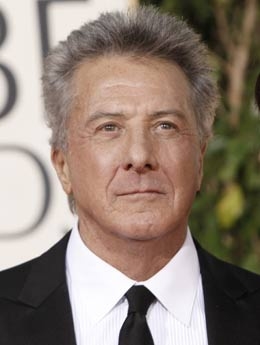
|
Dustin Hoffman | Carl Bernstein |

|
Robert Redford | Bob Woodward |
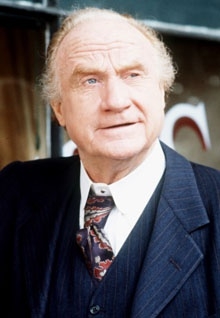
|
Jack Warden | Harry Rosenfeld |
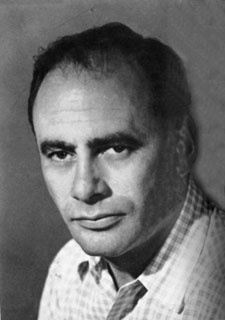
|
Martin Balsam | Howard Simons |
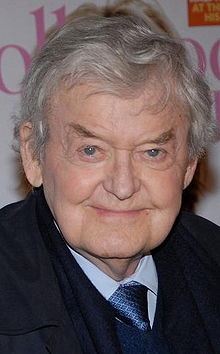
|
Hal Holbrook | Deep Throat |

|
Jason Robards | Ben Bradlee |

|
Jane Alexander | Bookkeeper |

|
Meredith Baxter | Debbie Sloan |

|
Ned Beatty | Dardis |

|
Stephen Collins | Hugh Sloan |
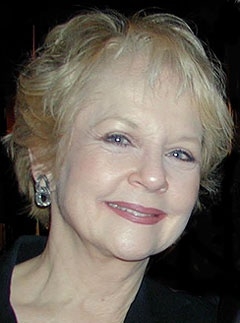
|
Penny Fuller | Sally Aiken |
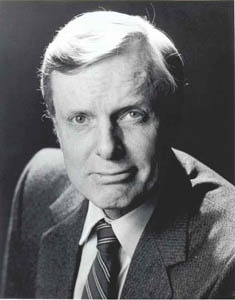
|
John McMartin | Foreign Editor |

|
Robert Walden | Donald Segretti |

|
Frank Wills | Frank Wills |
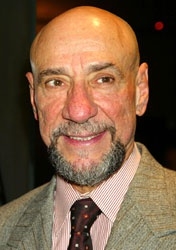
|
F. Murray Abraham | Arresting Officer #1 |

|
David Arkin | Eugene Bachinski |

|
Henry Calvert | Bernard L. Barker |
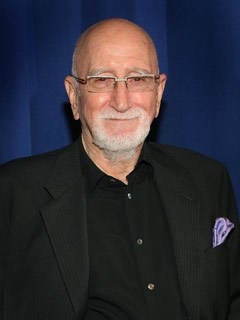
|
Dominic Chianese | Eugenio R. Martinez |

|
Bryan Clark | Arguing Attorney |
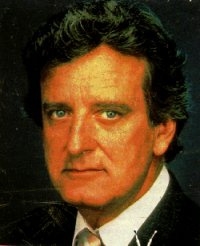
|
Nicolas Coster | Markham |

|
Lindsay Crouse | Kay Eddy |

|
Valerie Curtin | Miss Milland |
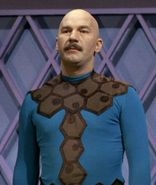
|
Gene Dynarski | Court Clerk |
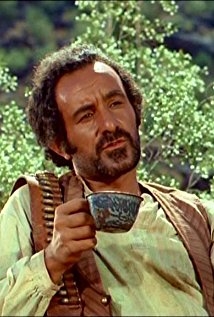
|
Nate Esformes | Virgilio R. Gonzales |

|
Ron Hale | Frank Sturgis |
Crew
| Director | Alan J. Pakula |

|
| Writer | Carl Bernstein, Bob Woodward, William Goldman | |
| Producer | Jon Boorstin, Michael Britton, Walter Coblenz | |
| Musician | David Shire | |
| Photography | Gordon Willis | |
Edition details
| Edition | 2 Disc Special Edition |
|---|---|
| Nr Discs | 2 |
| Screen Ratios | Widescreen (1.85:1) |
| Audio Tracks | Dolby Digital Mono [French] Dolby Digital Mono [German] Dolby Digital Mono [Italian] Dolby Digital Mono [Portuguese] Dolby Digital Mono [Spanish] DTS-HD Master Audio Stereo [English] |
| Subtitles | Danish | Dutch | English (SDH) | Finnish | French | Norwegian | Portuguese | Spanish | Swedish |
| Distributor | Warner Bros. |
| Edition Release Date | Feb 04, 2014 |
| Regions | Region A |
Personal
| Owner | Kerry & Dawn |
|---|---|
| Location | Movies-02 |
| Storage Device | TD 34 |
| Purchased | On Jan 04, 2023 |
| Index | 1157 |
| Added Date | Apr 07, 2021 23:24:10 |
| Modified Date | Jun 27, 2025 22:59:52 |
Links
| IMDB |
| TheMovieDb.org |
| MovieMeter.nl |


 English
English  Nederlands
Nederlands  Deutsch
Deutsch  Français
Français  Español
Español  Magyar
Magyar  српски
српски  Dansk
Dansk  Italiano
Italiano  Svenska
Svenska  Slovenčina
Slovenčina  Português
Português 

